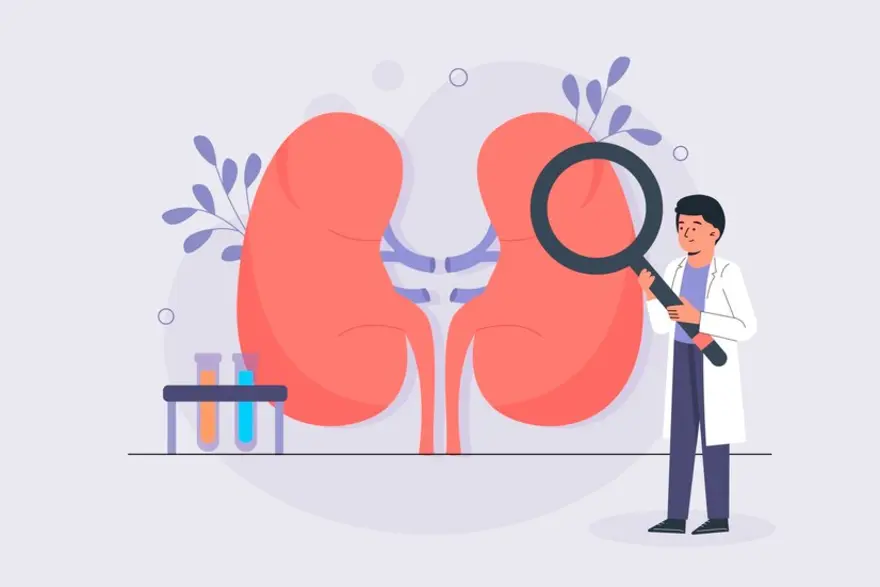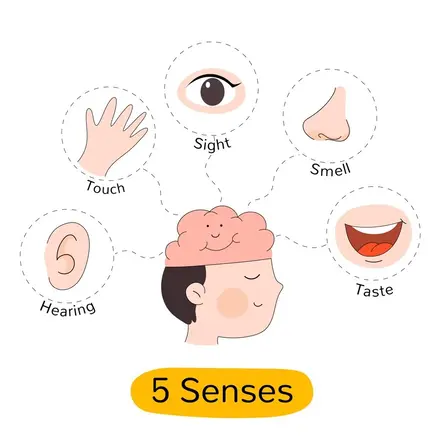Preventive Healthcare
Uremia: Symptoms, Causes, and Effective Treatment Strategies
1405 Views
0

What is Uremia?
Uremia is a serious condition that occurs when the kidneys are unable to filter waste from the blood effectively, resulting in accumulation harmful of toxins in the bloodstream. This condition is commonly seen in people with advanced kidney disease or kidney failure.
Uremia causes symptoms like fatigue, nausea, muscle cramps, confusion, and swelling, along with complications such as high blood pressure and heart issues.
In healthy kidneys, waste products are filtered out and excreted through urine. However, when kidney function declines, these toxins build up and impact different bodily systems. Uremia is a medical emergency that often necessitates urgent treatment, such as dialysis or a kidney transplant, to remove harmful substances from the bloodstream.
Early detection and treatment of kidney issues can help prevent uremia from developing. Managing underlying conditions like diabetes and a high blood pressure is also crucial in preventing kidney damage that could lead to uremia.
At which stage of chronic kidney disease does Uremia occur?
According to medical experts, uremia commonly occurs in the advanced stages (stage IV or V) of chronic kidney disease (CKD), at which point the kidneys have lost much of their function and cannot efficiently filter out waste materials from the body.
How common is Uremia?
While there are no precise statistics for uremia, but it’s less common in in individuals who receive regular care from a nephrologist. Healthcare providers usually intervene before or shortly after mild uremia symptoms appear, using treatments such as dialysis or kidney transplants.
What are the symptoms of Uremia?
Uremia symptoms can vary depending on the severity of the condition. Some common ones include:
- Fatigue and Weakness: The body feels drained due to accumulation of toxins in the blood.
- Loss of Appetite: Many patients experience a decrease in their desire to eat.
- Nausea and Vomiting: The buildup of waste can cause digestive issues.
- Metallic Taste in the Mouth: A common symptom linked to the presence of toxins is a metallic taste.
- Muscle Cramps: Often caused by electrolyte imbalances
- Itchy Skin: Uremia can lead to skin irritation and itching, a result of excess waste in the bloodstream.
- Swelling: Fluid retention in the hands, feet, or face is typical due to poor kidney function.
- Shortness of Breath: Fluid may build up in the lungs, making it difficult to breathe
- Confusion and Difficulty Concentrating: Uremia affects brain function, leading to cognitive issues.
- High Blood Pressure: Increased blood pressure due to fluid overload.
- Chest Pain: Can occur if the heart is affected by fluid buildup or high blood pressure.
In severe cases, untreated uremia symptoms can cause more serious complications such as seizures and coma.
What is the main cause of Uremia?
The primary uremia cause is kidney failure, often resulting from chronic kidney disease. Conditions like diabetes and hypertension are identified as the most common causes of CKD which can eventually lead to uremia if left unchecked.
Who is most likely to get Uremia?
Individuals with chronic kidney disease (CKD) or kidney failure are most likely to develop uremia. Common uremia causes include diabetes, high blood pressure, and long-term use of medications that can damage the kidneys. People with autoimmune diseases like lupus, as well as individuals with a family history of kidney issues, are also at higher risk. Elderly adults are more vulnerable due to age-related declines in kidney function. If left untreated, they can lead to toxin buildup, causing uremia symptoms such as fatigue, nausea, and confusion, which indicate the need for urgent treatment.
What are the complications of Uremia?
If left untreated, uremia can cause severe complications such as anemia, excessive bleeding, skeletal problems, heart complications, decreased brain function (uremic encephalopathy), infertility, and malnutrition.
How is Uremia diagnosed?
Uremia diagnosis typically begins with a comprehensive medical history and physical examination, focusing on symptoms like fatigue, nausea, muscle cramps, and confusion. The doctor will order several tests to confirm the diagnosis and assess kidney function.
One of the key tests is a blood urea nitrogen (BUN) test, which monitors the level of waste products in the blood. High levels of creatinine in the blood are indicative of poor kidney function and possible uremia.
A glomerular filtration rate (GFR) test is used to evaluate how well the kidneys are filtering blood. A low GFR indicates reduced kidney function, which can lead to uremia. Urine tests may also be performed to check for abnormal levels of protein or waste, further supporting the uremia diagnosis.
In some cases, imaging tests like an ultrasound or CT scan may be used to visualise the kidneys and detect any structural issues. These tests help determine the extent of kidney damage and guide treatment.
Getting a prompt uremia diagnosis is important to avoid more complications. Once diagnosed, treatment usually involves dialysis or a kidney transplant to remove toxins from the blood and help the kidneys work properly again.
What tests will be done to diagnose Uremia?
Doctors use various tests for uremia diagnosis, including blood urea nitrogen (BUN) and creatinine tests to evaluate for waste levels in the blood. A glomerular filtration rate (GFR) test evaluates kidney function, while urine tests and imaging studies (like an ultrasound or CT scan) help identify any kidney damage or issues.
Can Uremia be cured?
Uremia cannot be fully cured, but it can be effectively managed with proper treatment. The underlying cause, whether kidney failure or severe kidney disease, requires ongoing care. Treatments such as dialysis help eliminate waste from the blood, which helps control uremia symptoms. In some cases, a kidney transplant can serve as a long-term solution by restoring normal kidney function.
Although these treatments do not cure the condition, they can greatly improve patient’s quality of life. Early identification and management of underlying issues like diabetes or high blood pressure are key to preventing the progression of uremia.
Are there any specific medications to treat Uremia?
While medications do not directly treat uremia symptoms, they play a significant role in preventing other effects of uremia on the body. This may include replacement EPO for preventing anemia and providing supplements such as iron, calcium, and vitamin D.
How can Uremia be prevented?
Preventing uremia is primarily involves managing chronic kidney disease (CKD). This includes regular dialysis, managing blood pressure and diabetes, avoiding kidney-damaging drugs, following a heart-healthy diet, and maintaining a healthy weight.
What is the outlook for people with Uremia?
The outlook for those with uremia depends according to the underlying cause and how quickly treatment is initiated. With proper management, including options like dialysis or a kidney transplant, many individuals can enjoy a good quality of life.
However, uremia is a serious condition that can result in life-threatening complications if not treated. Early diagnosis and management of the underlying issues such as diabetes or high blood pressure are essential for slowing kidney damage and enhancing long-term outcomes for individuals with uremia.
How long can a person live with Uremia?
Without dialysis or a kidney transplant, survival rates of individuals with severe uremia can be as low as a few days or weeks. However, with proper medical intervention and palliative care, these numbers can increase significantly.
Should I make any changes to my diet for Uremia?
A diet that is heart-healthy and low in sodium is typically recommended for individuals with chronic kidney disease (CKD). If the condition advances to an elevated potassium, phosphorus, or parathyroid hormone (PTH) levels, you may need to limit your intake of potassium, phosphate, and protein. In such cases, consulting a renal dietitian can be very beneficial.
When to see a Doctor?
It’s important to schedule regular appointments to monitor your kidney health if you have risk factors for kidney disease, including a history of kidney injury, high blood pressure, or changes in urination habits.
Do not hesitate from seeking an immediate medical attention if you experience abnormal behavior, chest pain, difficulty concentrating or breathing, confusion, drowsiness, fatigue, nausea, or vomiting.
Conclusion
Uremia is a serious medical condition that requires immediate attention and appropriate care. Although it may appear overwhelming, gaining a clear understanding of the uremia symptoms, causes, and treatment options can significantly help in effectively managing the condition.
In light of the information provided, consider consulting with Metropolis Healthcare for their at-home sample collection services. Their advanced diagnostic labs and skilled blood collection technicians ensure reliable pathology testing right at your doorstep. Remember to prioritise your health, as gaining knowledge and seeking timely intervention are crucial steps toward a healthier life.























 WhatsApp
WhatsApp